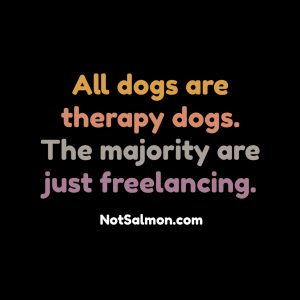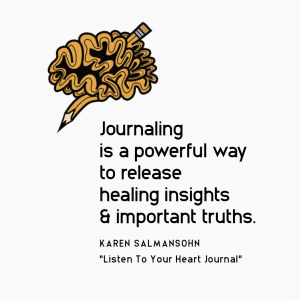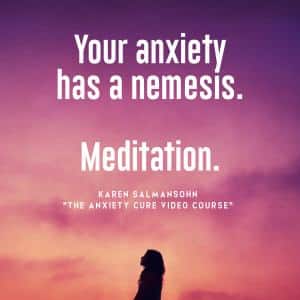 If you’re struggling with mental health issues and challenges, read on to learn about the best alternative mental health treatment options.
If you’re struggling with mental health issues and challenges, read on to learn about the best alternative mental health treatment options.
Mental health issues can be detrimental to one’s way of life.
Because of that, sufferers should do everything that can help them recover or improve their condition, even if they need to seek alternative treatments.
In 2021, over 42 million adults in the U.S. received some form of mental health treatment.
Treatments for mental health go beyond the well-known cognitive behavioral therapy and medications. And I’m here to explain a range of alternative mental health treatments to you!
I’m writing this article because I am a bestselling wellness author with about 2 million books sold globally.
Plus I founded the therapist recommended video course called The Anxiety Cure.
So I decided to put together this article to help anybody struggling with their mental health.
7 Alternative Treatments For Mental Health Issues
Continue reading to know about alternative and complementary mental health treatment options.
1. Exercise
Exercise isn’t really a 100% alternative treatment, as many healthcare professionals would recommend it to help people with mental health issues.
Studies suggest that exercise and most forms of physical activities, like yoga, can improve the symptoms associated with mental health issues.
Some effects of exercise are releasing endorphins, reducing stress, building confidence, and having social opportunities—all of which can help mental health sufferers cope and improve their condition.
Together with exercise, a sufferer may want to get acquainted with Ayurveda. It’s an Indian tradition that aims to get people to connect their mind and body, encouraging that the mind can heal everything. For starters, you may want to know more about the 20 qualities of Ayurveda.
2. Pet Therapy
 Pets are known to help mental health patients therapeutically deal with their issues. After all, they can make sufferers feel loved, less lonely, and happy.
Pets are known to help mental health patients therapeutically deal with their issues. After all, they can make sufferers feel loved, less lonely, and happy.
Pets can also affect a person’s blood pressure, motivate them to do positive things, and encourage them to go outside and socialize, which are the core things pet therapy promises.
Of course, only some have the privilege or option to take care of pets. However, there are other options on how they can experience all the mentioned benefits without adopting one. For example, they can volunteer in animal shelters, sit pets for other people, and aid in re-homing pets, acting as temporary shelters or foster parents for them.
3. Journal
 People don’t have to have mental health issues to start journaling.
People don’t have to have mental health issues to start journaling.
It has other benefits besides aiding a sufferer through depression, anxiety, and stress. It can even be used to help them recover from physiological problems.
Also, journaling isn’t as demanding as other alternative treatments. And you can treat it as a micro habit.
Writing down thoughts and noteworthy events only takes a few minutes of anyone’s time. And if it does take a lot more than that, then the better, as it can help a mental health patient reflect and have emotional catharsis.
4. Art And Music Therapies
Primarily, mental health patients can focus on unleashing their creativity through artistic hobbies. Few common ways they can do that are through music therapy and art therapy. Both these therapies have been observed to reduce the adverse effects of mental health issues.
Art can heal, as scientists say. It’s an excellent way to express feelings and emotions. Meanwhile, it doesn’t mean patients must be artistically inclined to undergo art and music therapies. The important thing in these is that sufferers can have the opportunity to develop coping mechanisms, develop positive emotional behavior, and many more.
5. Meditation
 Meditation is another commonly prescribed activity or alternative treatment.
Meditation is another commonly prescribed activity or alternative treatment.
It’s an effective way to reduce depression, pain, and stress, which can improve your mental health condition.
However, note that there are multiple types or forms of meditation. Each type can bring various benefits and effects.
The biggest challenge with meditation is to integrate it into one’s daily life.
Nonetheless, as long as set a dedicated place where a patient can practice it, get started with it, and experience its good effects, meditating daily can become a norm to them.
6. Socializing Within Communities
With social media, communicating and socializing with anyone has become more impersonal. And it’s no secret by now that social media has become one of the primary reasons why most people suffer from mental health issues.
Because of that, sufferers should go out of their way to integrate themselves into the communities around them. For example, suppose a patient wants to get started with yoga or exercises. In that case, they can hit the gym, join programs in a community center, look for free yoga classes in local parks, and check out churches, as some of them may offer free classes and an excellent location to meditate and do yoga.
7. Mental Help Apps
People are fortunate nowadays because of the proliferation of free helpful apps everywhere. Luckily for sufferers, they can take advantage of mental help apps, which can aid them in encouraging them to improve and recover from their mental health dilemmas.
Some of these apps can supplementarily assist sufferers with other alternative treatments. For example, there are many smartphone apps there that can instruct proper ways to do yoga, exercise, and meditate.
Meanwhile, other apps may provide affirmation messages, guide to becoming mindful, entertaining games, and access to helpful online communities, all designed to aid sufferers in relieving their mental health concerns.
Conclusion: Alternative Mental Health Treatments
Those are the alternative and complementary mental health issue treatments available for sufferers. As you have read, the word complementary is stressed—meaning mental health patients should not ignore or skip having professional and medical help with what they’re going through.
Get Tools To Live Your Happiest, Healthiest Life
Explore my nutritionist recommended online program: The Stop Emotional Eating Course!
Think happier. Think calmer.
Think about subscribing for free weekly tools here.
No SPAM, ever! Read the Privacy Policy for more information.
One last step!
Please go to your inbox and click the confirmation link we just emailed you so you can start to get your free weekly NotSalmon Happiness Tools! Plus, you’ll immediately receive a chunklette of Karen’s bestselling Bounce Back Book!


 If you’re struggling with mental health issues and challenges, read on to learn about the best alternative mental health treatment options.
If you’re struggling with mental health issues and challenges, read on to learn about the best alternative mental health treatment options. Pets are known to help mental health patients therapeutically deal with their issues. After all, they can make sufferers feel loved, less lonely, and happy.
Pets are known to help mental health patients therapeutically deal with their issues. After all, they can make sufferers feel loved, less lonely, and happy.  People don’t have to have mental health issues to
People don’t have to have mental health issues to  Meditation is another commonly prescribed activity or alternative treatment.
Meditation is another commonly prescribed activity or alternative treatment. 